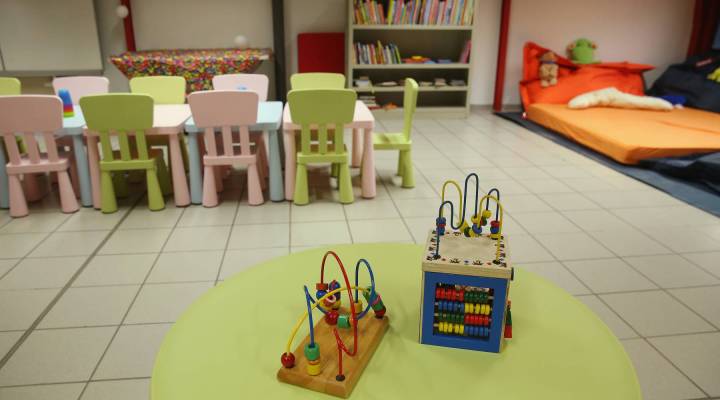
These moms south of Seattle are tackling asthma, starting in preschools
These moms south of Seattle are tackling asthma, starting in preschools

When Gabriela Avendaño’s daughter was about to start kindergarten, she took her to the doctor for a cough that wouldn’t go away. The doctor told her: “Your daughter doesn’t have a cold; she has asthma,” Avendaño said, speaking in Spanish.
The doctor gave Avendaño an inhaler and other medications, which Avendaño brought to the nurse’s office at her daughter’s school in Tacoma, Washington. “It really surprised me to find that the shelves of the nurse’s office were full of medications like my daughter’s,” Avendaño said. “I said, ‘Oh, so this is a very normal problem, here.’”
About one in 12 children in the U.S. has asthma, and nearly that many adults, according to the CDC. Asthma’s an expensive problem: It can lead to emergency room visits, hospitalizations, and missed work and school. The CDC estimates that the average medical cost for a person with asthma is about $3,300 per year. That’s not counting the cost of missed school or work.
People with asthma can reduce their risk of asthma attacks by taking their medication and by getting rid of dust, mold, and other things that trigger asthma. When Avendaño learned that, she began thinking about what she could do to help tackle the problem of asthma in the Latino community in the Tacoma area.
One way to start addressing the problem is to look at daycare centers, according to Sally Findley, a public health researcher at Columbia University. “Children in daycare centers spend a lot of time there,” she explained, “so, all of that time, they’re being exposed to whatever triggers are still in the daycare center.” And, Findley added, daycare providers want to have clean spaces but don’t always know how.
“The same kinds of asthma triggers that exist in homes also exist in daycare centers,” said Findley. “You can find cockroaches. You can find mold. Blankies and bears could be the home for dust mites.” Findley said some cleaning agents, like chlorine, can also trigger asthma.
Armed with this information, Avendaño and nine other moms from the Tacoma area decided to tackle the problem of asthma triggers in daycares. They started by visiting small, unlicensed daycare centers and surveying their conditions.
“One of the daycares I visited was really small, and the windows were always closed,” said Elsa Trujilio, one of the moms. “At the end of the survey, we said, ‘Look, you have to open the windows every day for at least half an hour, and the cleaning products you use are also very important.’ They hadn’t known these things. I think our advice helped.”
Araceli Martínez takes care of four young kids in her trailer home in a park southeast of Tacoma. She charges three dollars an hour per child.

Araceli Martínez runs a small daycare southeast of Tacoma. She says she learned a lot about how to reduce asthma triggers from a group of moms working to prevent asthma attacks and hospitalizations in their community.
Martínez said that when she first started running her daycare, she didn’t know much about what could trigger an asthma attack. “I used to use aromatic candles and a lot of Clorox,” she said. “I’d empty the whole jug to make things really clean.”
The group of moms taught her a lot about how to keep her house free of asthma triggers, Martínez said. “You should wash sheets and stuffed animals regularly, because they gather a lot of dust,” she said. “It’s better to use organic cleaning products, and, if you use Clorox, measure small amounts.”
Public health researchers in New York and Florida have taken similar steps to train daycare providers, finding they could reduce asthma hospitalizations among toddlers. The moms in Tacoma say they hope their local public health departments will start their own program of asthma inspections and related education for daycare providers.
There’s a lot happening in the world. Through it all, Marketplace is here for you.
You rely on Marketplace to break down the world’s events and tell you how it affects you in a fact-based, approachable way. We rely on your financial support to keep making that possible.
Your donation today powers the independent journalism that you rely on. For just $5/month, you can help sustain Marketplace so we can keep reporting on the things that matter to you.












